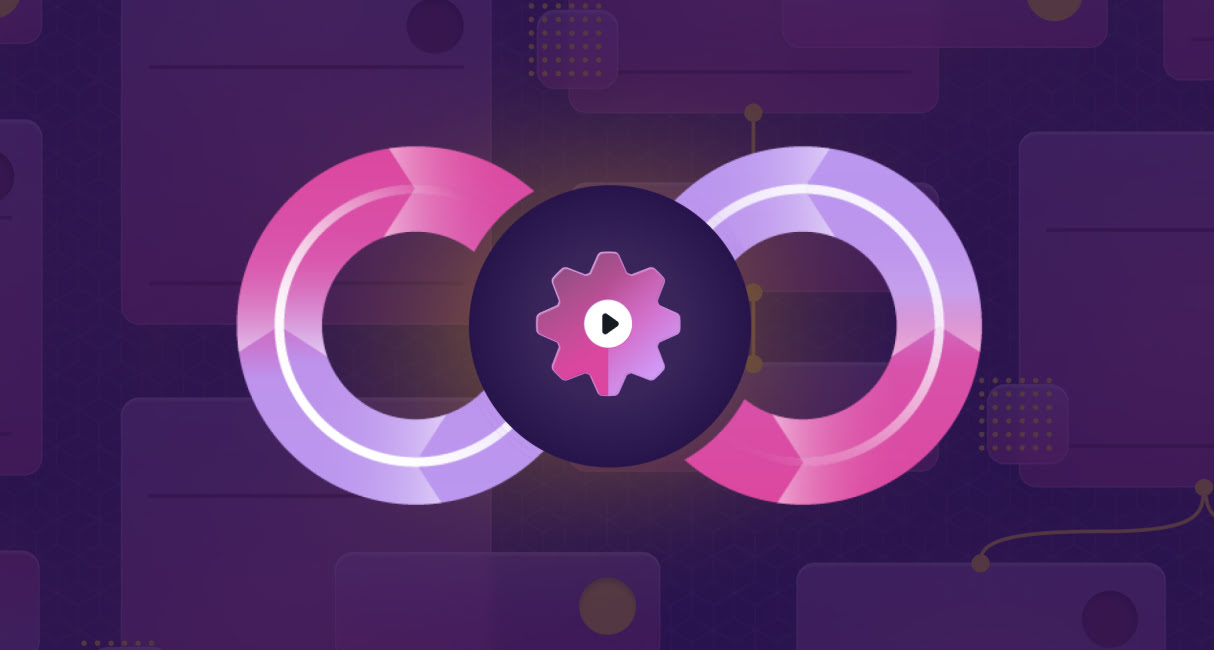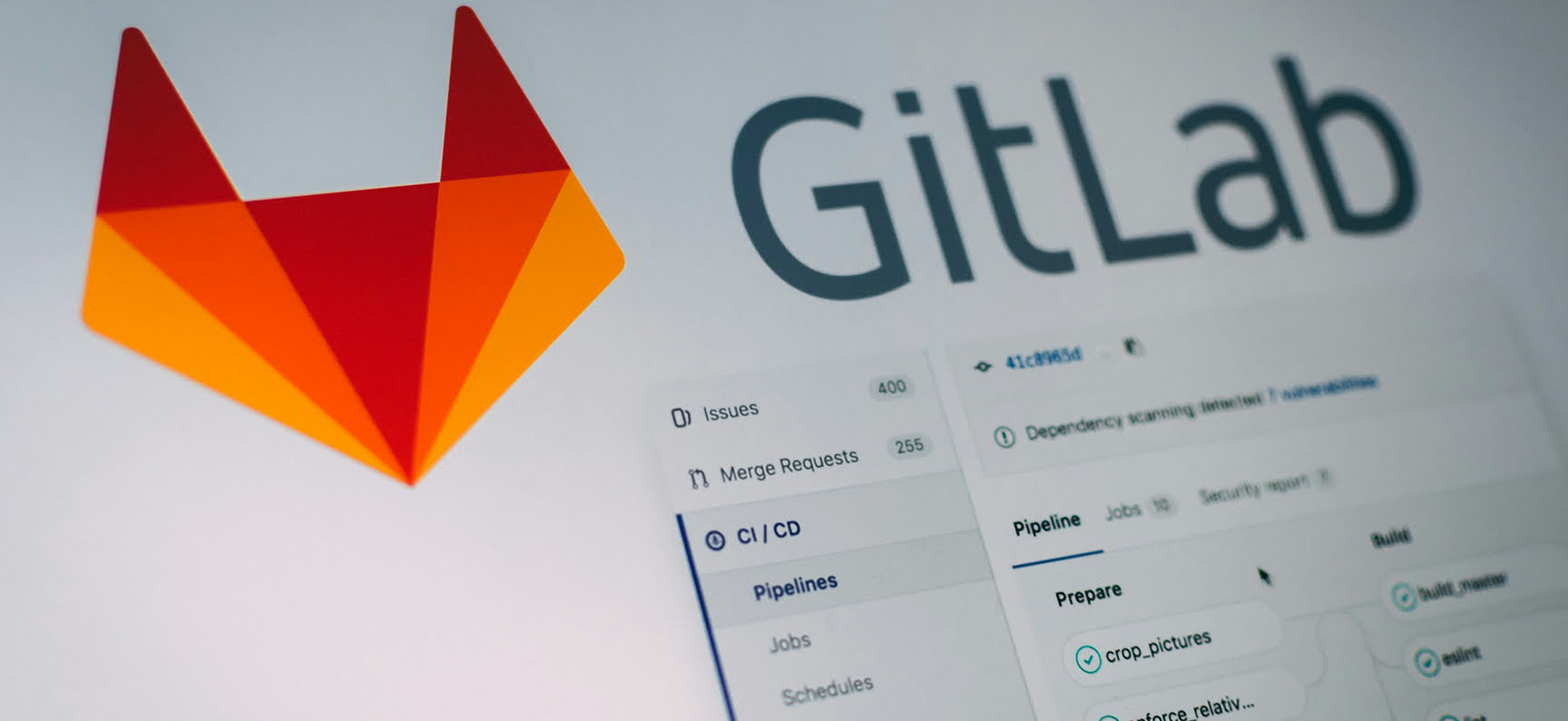If you’re a small or medium enterprise (SME) trying to move fast, stay lean, and ship quality software, you already know the pressure is real. You’ve got to automate what you can, monitor everything, and deliver without dropping the ball. That’s where DevOps comes in – and more importantly, choosing from the best DevOps tools in market to streamline your processes and keep your team productive.
And the momentum is real. According to IMARC Group, the global DevOps market was valued at approximately $13.16 billion in 2024 and is projected to skyrocket to $81.14 billion by 2033, growing at a compound annual growth rate (CAGR) of 19.95%. That kind of growth tells you everything you need to know: DevOps isn’t just a trend – it’s the engine behind modern software delivery.
But with hundreds of options out there, finding the best stack for your team can feel like searching for a needle in a CI/CD haystack. This guide breaks it all down: from infrastructure automation, code quality, and monitoring to release management, security, and DevOps analytics. Whether you're looking for open-source utilities or enterprise-ready platforms, we've got you covered.
Let’s dive into the top DevOps tools used by corporation and enterprises – tailored specifically for growing companies who want to scale like the big guys, without the bloat.
What Makes a DevOps Tool “Great” for SMEs?
Here’s what to look for in the best DevOps automation tools list when you’re building for speed and sustainability:
- Lightweight: No bloated enterprise software with six-figure contracts.
- Automatable: Integrates easily with your workflows and supports scripting/APIs.
- Affordable or Open Source: Let’s be real – budget matters. The most used DevOps tools by successful SMEs often start out as open-source, community-backed, and cost-effective. Pay only when you grow into enterprise-level needs.
- Intuitive: The leading DevOps tools strike a balance between power and usability. Your team should be able to get up and running without weeks of onboarding.
- Flexible: Works across environments – cloud, on-prem, hybrid.
Whether you're focused on DevOps development, mobile app development, or full-blown software development services, the right toolbelt can make or break your cycle time and uptime.

DevOps Categories: The Different Types of DevOps Tools
There’s no one-size-fits-all. DevOps tools cover every part of the software delivery lifecycle. Here’s a quick breakdown of the different types of DevOps tools you’ll find below:
- CI/CD Tools – Continuous integration, delivery, and deployment. Automate the full pipeline from code commit to live deployment. These continuous deployment tools in DevOps help you release faster, catch issues earlier, and deliver updates with confidence. Think Jenkins, GitHub Actions, GitLab CI, and CircleCI.
- Build Automation & Code Tools – Compiling, testing, code scanning. Tools that compile, test, scan, and validate your code automatically. They ensure that what’s built is reliable, clean, and production-ready. Must-haves for quality assurance in agile pipelines.
- Configuration Management – Automate the setup and maintenance of infrastructure environments. These tools make sure your dev, staging, and production systems stay consistent and reproducible.
- Containerization & Orchestration – Package your applications into lightweight containers and deploy them anywhere. Container management platforms like Docker and Kubernetes are essential for modern, cloud-native integrated development.
- Monitoring & Observability – Gain real-time insight into application performance, server uptime, and error tracking. The best integrated development monitoring tools comparison often includes Prometheus, Grafana, Datadog, and the ELK stack.
- Security & Compliance – These DevOps security tools list includes platforms that integrate static code analysis, vulnerability scanning, and compliance checks into your pipeline – like Snyk, SonarQube, and Trivy.
- Collaboration & Planning – Agile boards, issue tracking, reporting. Keep everyone aligned with agile boards, task tracking, and real-time updates. Tools like Jira, ClickUp, and Trello help integrated development teams plan sprints and track progress without chaos.
- Analytics & Dashboard – Visualize and analyze everything from deployment frequency to failure rates. These DevOps analytics tools give you the insights to optimize pipeline performance and team efficiency.
- Release & Deployment Management – Control how and when you push changes to production. Release automation tools in DevOps support strategies like blue-green, canary deployments, and automatic rollbacks for safer launches.
- AI-Driven DevOps Tools – Use machine learning to predict incidents, reduce alert fatigue, and automate smarter decisions. This is a rising space where tools like Harness and Moogsoft are gaining traction.
Now let’s look at the must have tools across these categories.

Best DevOps Tools in the Market
We’ve pulled together a list of all DevOps tools that matter most right now – from battle-tested CI/CD engines to emerging AI-driven platforms. Whether you’re building cloud-native applications, managing hybrid environments, or scaling a fast-growing mobile app, this list reflects what real teams are using in production today.
Below you will find a list of most popular DevOps tools for enterprise use cases as well as picks that are ideal for startups and mid-market teams. Moreover, you’ll see a mix of full-featured suites, modular options, and the best open source DevOps tools that let you build a powerful pipeline without draining your budget.
Let’s dive into the tools that are leading the pack in today’s integrated development ecosystem.
CI/CD and Build Automation
A strong CI/CD pipeline is non-negotiable for teams practicing DevOps CI/CD tools workflows or managing complex app deployments. If you’re working in mobile application development or web, these tools are essential.
1. Jenkins (Free, Open Source)
Legendary in the DevOps world. Jenkins is flexible, powerful, and supports thousands of plugins, making it one of the most famous examples in the DevOps build tools list. Great for automated deployment and integrations.
2. GitHub Actions
Native to GitHub users. Seamless for teams already using GitHub. Enables fast CI/CD pipelines and automated testing workflows right from your repo.
3. GitLab CI/CD
A true all-in-one integrated development platform. Handles CI, CD, code scanning, and more – all baked into a single UI with tight Git integration. Ideal for code review, code scanning, and deployment in one flow. Great free tier.
4. CircleCI
Known for speed and simplicity, especially in mobile-first environments. CircleCI supports parallel job execution and detailed pipeline analytics.
Compare DevOps tools tip: For SMEs, GitLab CI/CD offers tighter all-in-one integration, while Jenkins wins on flexibility.
Security, Compliance & Scanning
Security is no longer a bolt-on – it’s built-in. Modern teams can’t afford to wait until the final deployment to worry about vulnerabilities. These tools are part of the go-to integrated development security utilities list, helping teams bake security into every phase of the pipeline, from code to container.
5. Snyk
Scans your code, open-source libraries, containers, and infrastructure-as-code for vulnerabilities. Loved for its dev-first UX and open-source scanning features.
6. Aqua Trivy
A lightweight, open-source scanner perfect for container and image vulnerability detection. It’s easy to script and integrate with any CI/CD tool.
7. SonarQube
Great for static code analysis. Detects bugs, security flaws, and code smells before they hit production – crucial for building clean, secure applications at scale. Great for improving code quality across the board.
Containerization & Orchestration
Containers aren’t just a trend – they’re the foundation of modern deployment. This category includes essential DevOps containerization tools and management platforms that help teams ship code in a consistent, scalable way. These are some of the most important tools for cloud-native and microservices development.
8. Docker
Still the gold standard in container technology. Makes packaging apps with all dependencies simple and repeatable.
9. Kubernetes
The leader in orchestration. Manages scaling, load balancing, rollouts, and recovery. It's critical infrastructure for apps that need to stay online 24/7.
10. Rancher (Best for SMEs)
An excellent open-source Kubernetes management platform – especially for SMEs. It simplifies cluster setup and provides a clean UI to manage containerized apps without deep CLI skills.
Best container orchestration tools tip: For smaller teams without a dedicated ops team, Rancher + Docker can be easier to manage than raw Kubernetes.
Configuration Management & Infrastructure Automation
These tools help teams define infrastructure as code (IaC), making it reproducible, auditable, and version-controlled.
11. Terraform
Cloud-agnostic IaC that works across AWS, Azure, GCP, and more. Automates infrastructure provisioning and reduces manual errors.
12. Ansible
Agentless and simple. Great for automating configuration, patching, and app deployment across distributed systems. Great for server provisioning, patching, and deployment. Used by both startups and the Fortune 500.
13. Pulumi
A modern IaC tool that uses real languages like Python and TypeScript. Ideal for developers looking for more flexibility than YAML-heavy systems.
Monitoring, Logging & Observability
Without visibility, you're flying blind. These are the most famous DevOps monitoring utilities today, helping teams stay ahead of performance issues, outages, and bottlenecks. Whether it’s uptime tracking or database observability, these tools are mission-critical.
14. Prometheus + Grafana
Popular continuous monitoring tools in DevOps. The open-source duo that powers real-time metrics and dashboards. Perfect for custom alerting and infrastructure telemetry.
15. Datadog
A premium platform with rich features across APM, logging, metrics, and synthetic testing. Especially powerful in distributed and hybrid environments. Metrics, logs, APM, database observability.
16. ELK Stack (Elasticsearch, Logstash, Kibana)
Open-source logging powerhouse. Ideal for centralized logging and visualizations. Great for incident analysis and building a complete observability pipeline.
Best DevOps monitoring tools comparison: Prometheus + Grafana wins on flexibility; Datadog on ease of use.
AI-Powered and Analytics Tools
DevOps is getting smarter. This category covers analytics tools and AI tools for DevOps engineer that surface insights, reduce noise, and drive data-backed decision-making across the pipeline.
17. Harness
Automates rollbacks, deployment verification, and change impact analysis using machine learning. Great for enterprise-grade continuous delivery.
18. Splunk Observability
Connects metrics, logs, and traces with AI-powered alerts. Scales well across teams and integrates with everything from Salesforce to Kubernetes.
19. Moogsoft
Focused on noise reduction and root cause detection. A smart assistant for on-call engineers and SREs.
Software Testing Tools in DevOps
Shift-left testing is one of the best ways to boost velocity and cut costs. These top integrated development software testing utilities help automate every type of test, from unit to UI to API.
20. Selenium
Still the most popular browser automation tool. Open source and highly extensible.
21. Postman
Fantastic for API testing and mocking. Useful for frontend and backend teams alike, especially in microservice-heavy apps.
22. TestSigma
A no-code testing platform designed to help non-devs contribute to the QA process. Fast-growing among agile teams.
Top DevOps software testing tools tip: Selenium is perfect for browser apps; Postman dominates APIs.
Collaboration, Planning & Agile Tools
DevOps without collaboration is chaos. These utilities bring visibility, accountability, and rhythm to your teams across development, testing, and release cycles.
23. Jira
The de facto standard for agile planning and sprint management. Deep integration with Git tools, test suites, and DevOps dashboards.
24. ClickUp
A modern alternative to Jira with simpler UX and aggressive pricing. Growing fast with small and mid-sized teams.
25. Slack + GitHub + Zapier
A lightweight stack that brings real-time collaboration, PR approvals, and deployment alerts into one streamlined workflow. Perfect for modern, remote-first teams.
DevOps Tools Comparison Table (Quick Glance)
When you’re choosing from the most important DevOps tools on the market, speed matters – but so does clarity. With so many overlapping features and flashy marketing claims, it’s easy to lose sight of what really sets each tool apart.
That’s why we’ve pulled together this quick-glance comparison: so you can see the difference between all DevOps tools that matter – side by side. Whether you're looking to build out your CI/CD pipeline, boost security, automate releases, or simplify container orchestration, this table highlights the key functionality, use cases, and value behind each tool – especially the ones that matter most for small and midsize teams.

You’ll also find picks from our curated list of DevOps release management tools open source, so if you’re looking to move fast without breaking the budget, you’ll know exactly where to look.
| Category | Tool | Best For | Free Tier |
| CI/CD | GitLab, Jenkins | Fast pipelines, automation | |
| Monitoring | Grafana, Datadog | Real-time observability | |
| Security | Snyk, SonarQube | Scan for vulnerabilities | |
| Containers | Docker, Rancher | Containerization & cluster mgmt | |
| Infrastructure | Terraform, Ansible | IaC and server provisioning | |
| Analytics & AI | Harness, Moogsoft | Predictive ops & smart alerting |
|
| Planning | Jira, ClickUp | Agile planning and team sync |
What Business Leaders Should Watch in DevOps
If you’re leading a fast-moving company – whether a growing SME or a larger enterprise – the way your tech team delivers software is no longer just a technical issue. It’s a business issue. And staying ahead means keeping your infrastructure aligned with the pace of your product strategy, market demands, and customer expectations.
Today’s DevOps developer doesn’t just need automation – they need intelligent systems that can adapt, scale, and optimize on the fly. That’s where DevOps AI tools are stepping in. These platforms are no longer experimental – they’re fast becoming core components of high-performing toolchains. For example, platforms like Harness or Moogsoft don’t just monitor – they predict, verify, and respond automatically.

As a business leader, what you need to know is this: the most trending DevOps platforms right now aren’t just the flashiest – they’re the ones solving real bottlenecks like release delays, alert fatigue, and underused infrastructure.
At Artjoker, we help business leaders and tech stakeholders cut through the noise and architect an integrated development system that matches your growth trajectory, not just your current stack. If you’re ready to move from a reactive release cycle to a proactive, insight-driven infrastructure, let’s talk.
Conclusion
In a DevOps ecosystem that’s growing more crowded by the day, the key isn’t finding the most hyped utilities – it’s selecting the right ones that fit your team’s velocity, size, and future roadmap. As your delivery model matures, so does the demand for observability, governance, security, and precision in deployments. That’s why understanding the various capabilities across each category – whether it's infrastructure-as-code, CI/CD orchestration, or analytics-driven performance insight – isn’t just helpful, it’s essential.
A proper DevOps toolchain assessment ensures you’re not just reacting to outages or bottlenecks, but proactively building an environment that empowers your developers and supports long-term agility. There’s no single roadmap, no one-size-fits-all solution – just an ever-evolving landscape of options. And navigating it requires not only an overview of the ecosystem but real-world experience aligning those utilities with your exact business goals.
That’s where Artjoker comes in. Whether you’re just starting to explore DevOps or reassessing an aging toolchain, we help you cut through the noise, prioritize what matters, and build a streamlined, scalable setup that gets the job done – without the overhead. If you're ready to move from patchwork solutions to a DevOps system that performs under pressure, reach out. We’re ready to help you build better, from the ground up. Get in touch today.
Similar articles
View allyour business
together
- PROJECT INQUIRIES info@artjoker.net
- CALL US +1 213 423 05 84
contact us:











